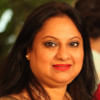Age gracefully and healthily

When your new, young co-worker pipes up and says, "I was just in kindergarten when you started working here,” it burns, leaving a deep scar. Growing old is not easy for most people. It is hard to digest the fact that you do not look or feel as you did when you were younger. There is a sense of loss in that, especially in a culture that really promotes youthful appearances.
The fact is, change is difficult, and ageing is all about change. However, if you do not let your body age faster and instead try to age gracefully and healthily, you have won half the battle.
Dr Chan Kin Ming, a geriatrician, emphasised that healthy ageing is the key to longevity. While speaking at the Gleneagles Hospital's 17th annual seminar 'Managing Ageing- Recent Advances in Medicine' held at Singapore recently he said, "Eat a bit of everything, such as, carbohydrates, vegetables, fruits, fats, protein while following the food pyramid and accordingly stick to your country's own produce that are rich in nutrients as suggested in the food chart.”
The conference was attended by 18 international journalists from South Asian countries like Myanmar, Indonesia, Malaysia, Vietnam, Cambodia and Bangladesh. The seminar had a diverse range of specialists in geriatric medicine; endocrinology, ophthalmology, cardiology, orthopaedic surgery and neurology who talked elaborately on ailments common to senior citizens. The focus of the seminar was to raise awareness about managing ageing and maintaining quality of life and not the longevity.
Health services in Singapore have recently begun to specialise in advanced treatment with emphasis on elderly citizens. Singapore's healthcare industry has built such a reputation in the region that international patients from Indonesia, UAE and Bangladesh frequent their hospitals seeking treatment. Therefore, it is not an overstatement to consider Singapore as a pioneer in many of the recent advances in medicine, explaining the surge in medical tourists.
Geriatric talk
Dr Chan Kin Ming emphasised, “If the body ages early on there is a higher risk of it being affected by all kinds of odd diseases. The key to healthy ageing is following the food pyramid and maintaining a proper diet. Reducing stress is also of utmost importance. If your stress hormone goes up, there will be an increase in production of free radicals in your body and the stress will not allow you to rest.”
“Reducing stress will bring you to a slower, calmer state of mind which is bound to do you good. Proper sleep is important as well. Sleep disorder or early awakening like waking up at 3am in the morning is a sign of depression in older people. And lastly alcohol consumption in moderation is also important,” he continued.
“Older people tend to have protein deficiency simply because they tend to think that they will not be able to digest protein at their age. This is not true; a protein rich diet is extremely important at an older age to build muscle and help in walking. Elderly people should have egg whites everyday to prevent protein deficiency,” Dr Ming stated. He also recommended nuts as another source of protein along with deeply coloured vegetables which have more nutrients. “Patients suffering from diabetes or gout must consider their food chart. Anti ageing supplements are only good for you provided your body is deficient in what the supplement is offering. If the level is normal then supplements are not much of a help,” Dr Ming added.
The endocrinology system
There are many faces of thyroid disorder in the elderly. Dr Vivien Lim, a renowned endocrinologist, in her speech at the Gleneagles annual seminar pointed out that thyroid disorders are the commonest among the elderly.
“Hyper thyroid or too much T3 and T4 hormones would make the patient anxious, restless and thin whereas hypo or too little would make the patient fat, lethargic and while also lowering the metabolism rate. This hormone should be in harmony with each other for a person to lead a normal life,” Dr Lim said.
“As long as you are being treated for your thyroid condition with advance medicine and technology you can prevent unnecessary surgery. Many patients opt for ayurvedic pills or treatment options. This is something I am not keen on because it might have concentrated iodine content and might pose numerous health hazards for you. My patients complain about sleeplessness and it can be very frightening. I mean who can fall asleep with a huge goitre compressing the airway thus the best way out is to treat it immediately,” Dr Lim explained.

Brighter eyes for a brighter life
As we age, our eyes also grow old and different diseases can inflict the eyes such as cataract, glaucoma, diabetic retinopathy or retinal detachment. If left alone, these diseases can affect the vision severely and some patients may become blind. Prevention is always better than cure. There are simple measures that patients are advised to follow to prevent the onset or delay the progression of eye diseases.
“If you take care of your hyper tension, chronic diabetes then a lot of degenerative eye problems can be addressed properly; cataract and glaucoma are degenerative diseases and can be successfully treated during earlier ages. It is important to have antioxidants, wear sunglasses to protect eyes from UV rays and proper exercise,” emphasised Dr Loh Boon Kwang, an Opthalmologist.
Aching joints
Our body starts to wear out as we grow older and it invariably leads to pain and discomfort in many areas. We should try to understand how it affects us, and learn to manage the problems promptly and effectively, so as to reduce the risk of downtime and loss of function. Common areas of complaints include neck and back pain, upper limb and lower limb pain, as well as foot and ankle pain. It is important to consult a doctor if there is any pain and where necessary, to further refer to an orthopaedic surgeon for further management.
Dr Sean Ng, an orthopaedic surgeon, in his talk said, “Joint pain is synonymous with growing old. In fact it aggravates with ages. The sugar supplement glucosamine which helps in joint lubrication can help in the early stages and help stop further aggravation. For a diabetic patient, up to 1500 mg per day intake can be allowed, provided your sugar level is within normal parameters.
“Most patients complain about neck and back pain and the non-pharmacological management would be managed physical activity and correcting the posture of sitting along with sleeping modification, using braces and applying heat or cold therapy,” Dr Sean Ng informed.
Of heart attacks and failures
“Heart failure is a common condition that general practitioners and non-cardiology specialists treat. It is gaining more prominence as the incidences of heart failure is rising. This is linked to an ageing population,” said Dr Daniel Yeo, a cardiologist in his paper at the seminar. “There are many new therapies available. Nowadays, heart failure treatment is not just about giving diuretics, or the old stalwarts of ACE-Inhibitors and Beta-Blockers. The heart failure specialist can now guide the patient through a plethora of new and old drugs (oral and parenteral), devices, surgery and ventricular-assist pumps, so as to tailour the appropriate treatment for every patient as an individual,” he mentioned.
According to Dr Daniel Yeo, some heart attacks are sudden and intense, causing someone to gasp dramatically, clutch her heart and drop to the ground. But most heart attacks start slowly, with mild pain or discomfort. Often the people affected aren't sure what's wrong and wait too long before getting help. Dr Daniel Yeo went on to list some of the signs that can mean a heart attack is happening. These signs include chest discomfort, discomfort in other areas of the upper body, symptoms can include pain or discomfort in one or both arms, the back, neck, jaw or stomach. Shortness of breath is another symptom and this feeling may occur with or without chest discomfort. Other signs may include breaking out in a cold sweat, nausea or light-headedness. “Women are most likely to fall prey to heart attack after 10 to 15 years later than men because of estrogen protection. But women are somewhat more likely than men to experience some of the other common symptoms, particularly the pain between or behind the shoulder blades, fatigue, dizziness, nausea, vomiting, sweating, chest pain, shortness of breath and back or jaw pain,” Dr Yeo explained.
LOST MARBLES AND LOOSE SCREWS
Many (immediate, working, source and associative learning) aspects of memory decline with age. Some (long-term, procedural, semantic) do not. There is a spectrum of increasing functional disability from normal Age-Associated Memory Impairment (AAMI) to Mild Cognitive Impairment (MCI) and dementia. A common neuropathological substrate is usually present with all these conditions. The first two conditions do not involve loss of social or occupational function. Dementia can be due to many causes, some of which are reversible and which should therefore be identified. Depression is an important differential diagnosis. Dementia is better characterised and more easily diagnosed than AAMI or MCI. In the talk, Dr Ho King Hee, a neurologist, discussed symptoms of normal versus abnormal ageing, and suggested clinical approaches. MCI carries prognostic implications and AAMI ones do not. Lifestyle interventions, including cognitive training, physical activity, control of atherosclerotic risk factors, avoidance of particular medications and a healthy diet are associated with a lower risk of progression of MCI to dementia. Medications have a limited role in treating MCI.
“Normal and abnormal memory loss with ageing form a continuum, with common neuropathological substrates. It is easy to diagnose dementia however it is harder to diagnose AAMI and MCI. There are different memory types. Some types of memory worsen with age and some don't. There are ways to tell if memory loss with age is normal or abnormal. Lifestyle changes can reduce the risk of dementia to some degree,” Dr Hee explained.
“Stroke is a medical emergency and the warning signs for it include sudden numbness or weakness of the face, arm, or leg, especially on one side of the body, sudden confusion, trouble speaking or understanding, sudden trouble seeing with one or both eyes, sudden trouble walking, dizziness, loss of balance or coordination and even a sudden, severe headache with no known cause. Not all these warning signs occur during every stroke,” Dr. Hee explained.
Gleneagles Hospital, the most sought after in the region
Dr Vincent Chia, CEO of Gleneagles in his speech at the seminar spoke of the problems identified during the conference and about the facilities of the hospital and ability to deal with those very problems. “Gleneagles boasts a history of 56 years of giving care to Singaporean and other regional patients. It specialises in women's reproductive health, liver transplant and other liver disease and orthopaedics.” Dr Chia said that medical tourism is increasing in Singapore with the highest number of patients coming in from Indonesia, Malaysia, UAE and Bangladesh. This was again a sign of Singapore's booming healthcare industry.
The 270-bed Gleneagles Hospital houses an extensive range of medical and surgical specialties including oncology, cardiology, general surgery, gastroenterology, orthopaedic surgery and sports medicine, obstetrics and gynaecology. Gleneagles Hospital is accredited by the Joint Commission International (JCI), an internationally recognised standard for patient and staff safety, since 2006, thus reflecting the organisation's commitment towards being a quality healthcare provider. “We have specialist doctors in every sphere of patient care and also the expertise and technology to diagnose and treat a patient within 24 hours of consultation,” he said adding that they have about 30 percent occupancy of international patients. This was a sign that people have learned to associate Gleneagles with trust. Zahid Khan, Director, Parkway Hospitals, Dhaka office, also spoke about the healthcare industry, mentioning Bangladesh's healthcare industry as well. "Medical treatment in Bangladesh has improved in the last decade but to avail technologically advanced treatment, for complex surgeries or for minimal invasive surgeries related to cancer or liver and pancreatic ailments patients from Dhaka are increasingly seeking medical treatment in Singapore." The Gleneagles and Mount Elizabeth hospitals are under the Parkway Hospital's banner. There are international patient centres to facilitate international patients. There are two patient assistance centres in Bangladesh; one in Chittagong and the other in Dhaka to provide support to patients who are seeking treatments.
[email protected]
Photo Courtesy: Parkway Hospitals

 For all latest news, follow The Daily Star's Google News channel.
For all latest news, follow The Daily Star's Google News channel. 



Comments